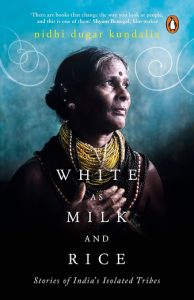Moaen Shalabia interviewed by Malaysian poet Rokiah Hashim
Rokiah Hashim: Tell me about your family and education background.
Moaen Shalabia: I was born to a family of farmers in Palestine, in a village called Al-Maghar in the Galilee. I was born on 14th October 1958 and am married with two sons. I am one of the Arab Palestinian minority living in Israel. I finished my studies in Haifa University in Business Administration and Management.

Rokiah Hashim: When did you start writing and why?
Moaen Shalabia: As a poet and prose writer, my writing career began in 1973, when I published my poems in national local newspapers and in Arabic papers abroad. My first book published was a book of poetry in 1989.
It was due to talent at first. After that, grief became the first reason for writing and my great love for my spiritual father, the great poet Mahmoud Darwish, and influences from my reading of other cultures and Arab poets and international poetry. My personal book writing, my own formative journey, an ethical compromise between my human experience and my obsession with the quest for freedom, truth and justice in an exceptional personal and subjective atmosphere that begins from the first cry and extends into the mysterious, tense and anxiety, collective and individual, between the ego and the other, between love and women, between the earth and the homeland.
In the midst of these things, I wrote about my homeland, about pain, hope, and dreams as a real experience. I wrote about the girl I loved and about the woman, I loved. However, the question of writing seems to sail in the blue, as it seems an incurable suffering, an astonishment saturated with consciousness and obsession, the shadow of the imagination, the subconscious tugging to reach the desire I do not like to reach in this absent, narrow and deep world.
Rokiah Hashim: Please tell more about your writing works – how many anthologies-festivals you participated?
Moaen Shalabia: I participated in many local and international festivals such as: International Poetry Festival in Maghar Galilee, Cairo International Book Fair in Egypt, Jarash Festival Jordan, Palestine Poetry Meeting Palestine Doha Cultural Festival Qatar, Istanbul International Book Fair Turkey The Romania International Festival – Days and Nights of Literature “Curtea de Arges Poetry Nights” Romania, Terranova Festival – Roma Italy, Alquds 2009 Capital of Arab culture, The Struga Poetry Evenings Republic of Macedonia, Sarajevo Days of Poetry Bosnia- Herzegovina International Poetry Festival, Poetry and Wine Kosovo The ‘Antares Festival of Poetry’ Galati Romania, Cultural Conference of the General Arab Writers Union United Arab Emirates (Abu Dhabi-Alshareqa-Dubai).
My collection of poems was included in the national and international anthologies. I won the ' Arab Writers Union Award- Prize for poetry for the year 2018 recently. I was awarded by the Palestinian Education Ministry for my blessed efforts in enriching the national education and for my loyalty to uplift the Palestinian issues on the Principles of justice and freedom.
I was awarded by the ‘Arab Intellectual’s Forum’ – Jerusalem Alquds. Besides, I received many appreciations certificates as a member of The Union of Arab Writers and The Movement of World Poets (Poetas Del Mundo) and Member of Mahmoud Darwish Foundation for Creativity.
My literary works were discussed and criticized in universities and in many sessions and newspapers and magazines in my homeland and abroad. My poems were translated into many languages, like French, Turkish, English, Romanian, Polish, Macedonian, Italian, Hebrew, Bosnian, Bahasa Malaysia, Albanian and Croatian language.
My published works
Poetry:
The wave is return – 1989.
(Al-Aswar Palestinian Culture Quarterly_ Acre)
Between two butterflies – 1999.
(The Arab Modern Foundation Jerusalem Alquds)
The memory of senses – 2001.
(The Arab Modern Foundation_ Jerusalem Alquds)
Rituals of Solitude – 2004.
(Al-Aswar Palestinian Culture Quarterly_ Acre)
The immigration of the naked longings – 2008
(Al-Aswar Palestinian Culture Quarterly_ Acre)
Stuck poems – 2014
(‘Culture’ for publishing and distribution – Tunisia)
Prose:
Meditations – 1992
(Renaissance Publishing and Distribution – Nazareth)
Narrow evening – 1995
(Abu Rahmoun, printing and publishing – Acre)
Spirituality – 1998
(Albatof – printing, publishing and distribution).
Rokiah Hashim: Being a Palestinian poet residing in Israel. What is it like?
Moaen Shalabia: The environment with its many changes and transformations and after the catastrophe of our people had a clear and significant impact on me, especially in the structure of poetic forms. Weakness, poverty, social homelessness, the state of future loss of consciousness, the state of estrangement and cultural estrangement, especially between us and our Arab world, cruel deprivation, creative brutality, rejection of loss in return for clinging to the land and its survival have a clear and direct effect on me. I am drawing horizons of life for life that emerged from ashes of catastrophe. Despite this difficult environment, this experience and its aftermath, my love for the Arabic language, reading poetry and the obsession with my talent always moved towards the search for the best through an exceptional atmosphere that stimulates the spirit of excellence and work to obtain sources and models of books and magazines from the Arab world. I also do not forget the social and the political activities, the cultural and the aesthetic scenarios that prevailed at the time.
I also do not forget my close relationship with the Al-Etihad newspaper, which highlighted interest in poets and young writers. They took my first writings on their pages. Also the pages of the newspapers of Al-Jaded and Al-Ghad. In the village, my soul was shining with its great dream, the dream of a Palestinian Arab man looking for a future of freedom and democracy. I worked diligently to achieve the national aspirations of our people through many national sites; I consider my life to be only a flash in the birth of space and time, but it is always screaming, permanently travelling in perpetual imaginative realms.
In this situation with dire humanitarian conditions and on this land and in this cultural scenario was born poet Moaen Shalabia from a suffering womb. Born with a passport to travel the world of art and beauty, rubbed the vast space inhabited by creativity and thirst, hugging men in the sun, seeking the leaves of live in this autumn time, the mural of life and death, carrying the question of freedom and truth in a different world, amazing and strange.
There is no freedom of writing within the sieged territories. In my opinion, the political agenda within the Palestinian Territories of 48, the West Bank, and the Gaza Strip dominated the cultural project for Palestinian special conditions. Today we need a new independent cultural project that promises a better future to build a frame of reference of all aspects of the cultural scene. A modern enlightening approach that will create the foundations and consistencies of civilization and culture in all its forms in order to be able and effective in our society and for our benefit on one hand. On the other hand, it will be so that they are able to withstand the risk of domination of the other cultures on us.
I live in my country, living together and sharing with the Jewish community, and I differentiate the Jews as a human being and as the Zionist.
I am more humane and open than the others. We have spent decades talking war and working for peace opposite them, who have lived to speak peace and wage wars at the same time.
I believe that peace is a national interest if it can be achieved to save the rest of the land of Palestine in accordance with international and human rights conditions.
We are divided between dreams and reality, between the fundamentalism of the past and the prospects of the future, but the present is the victim.
My hopes and dreams.
My dreams are always with new morning coffee and cigar, and how much is this key of value when it becomes a statement of life, especially when life is close to death.
Each new morning is a special escape from death with music, reading and writing.
I have many hopes, in addition to my poetic projects, peace, justice and freedom, the establishment of a Palestinian State.
My poems carry a lot of pain and hope in a difficult reality open to possibilities. The atmosphere is full of confusion, violence and destruction.
Rokiah Hashim: What inspired you into writing?
Moaen Shalabia: Poetry is the uncertain event, which expresses a yearning and turns things into shadows and shadows into things. It articulates our need to share the public esthetics. A basic component of poetry is the rhythm, which is not identical with rhyme. The rhythm echoes the breathing of the poet and his internal music. It mirrors the relationship between the letters, the words, the connotations, the meaning and the structure. My urge to write poetry emerges after listening to my internal obsessions, which wonders in my soul, mind and body. The poetic moment, when the lyrics emerge is an expression of my submission to the fragmentation of the self, leads to crystalizing a meaning, a form and a rhythm. The poem rises because of the creative urge, containing various components, such as innovation, inspiration, revelation, knowledge, dream, language, eloquence, thought, philosophy, history, geography, vision, feelings, rhythm, intuition, music, image and endless emotions.
Poetry is a moral reconciliation between my human experience and the engagement with the questions of freedom, the truth and justice in a personal state of exception, starting from the first cry and continues to elevate into anxiety, which does not stop until it forms a unity between the personal and the collective, the self and the other, stagnation and change, life and death and love of women and homeland.
Rokiah Hashim: In the end, if you asked me: Does the poetry still hold an important place in this hectic and restless world?
Moaen Shalabia: Poetry still holds an important place in our tense world. The poet in me feels anxious, as an Arab Palestinian and on the national, historical, moral and universal levels. I bear in mind many moral and political questions but seek to free myself from this symbolic weight in order to maintain the basic esthetical characteristics of poetry. Poetry is the highest form of human expression. Therefore, poetry cannot commit to a concrete reality but seeks to travel in the poetic space, beyond the grief that we witness in our daily life. Poetry is judged by its esthetical expression rather by its content, despite the fact that it is only good if the two coincide.
We live in a global reality, the age of multiculturalism. The world has become a village. Writing, reading and communication take place in the virtual world. The new technological developments have imposed a new way of life and created new human reality. These are reflected in new patterns of conduct. Despite all these changes, I still read paper books and write my poetry with liquid ink. Arab modernity is still incomplete and our Arab reality is deformed and marginalized. We look for a better relationship with the other, but the hegemonic patterns of consumptions have drained us. The impotency of the Arab world blocks its progress. Fragmentation has become one of our basic characteristics.
Part of the world lives in a postmodern reality, which has become a new nickname for a new historical, social, cultural, political, economic and scientific life and its expression in various fields.




